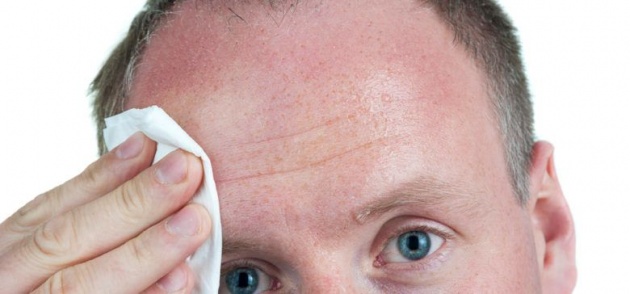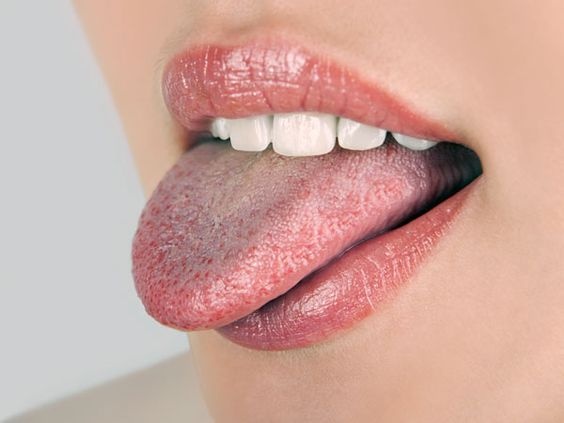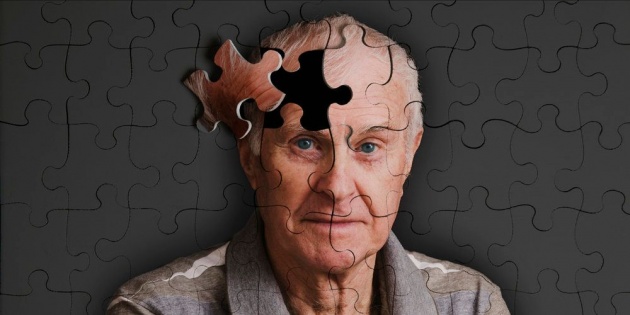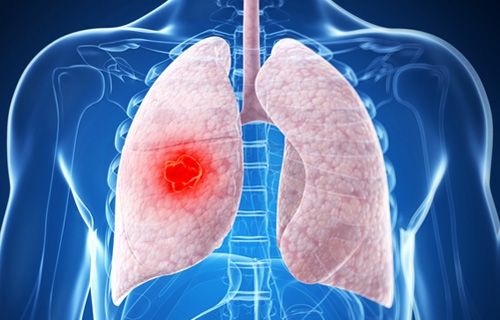
Quit Smoking / Credit: Buzzle.com via Pinterest
Of all the vices that I can think of it is cigarette smoking that is one that is hard to break. It's a habit that is highly addictive that one's body and mind can get used to the nicotine intake that leads the person to have it as their daily need even beyond its needs. Everyone in this world is very much familiar with cigarette smoking. I will not go into details what smoking is all about and its effects. What I will be sharing in this article are the effects when you stop smoking or the so-called Nicotine Withdrawal.
Nicotine Withdrawal is a jargon word for me not until my father had it and saw the symptoms with my own eyes. I speak to this blog based on experience not to myself but my father's. He was 15 years old when he started smoking and quit gradually at the age of 72. Until one day he felt the nicotine resistance of his body every time he smokes. Unfortunately, his smoking habit stopped abruptly. Two months later he died of lung cancer three days before Christmas. After his death, I decided to make a blog for the awareness of some smokers out there who wants to quit and to reflect on whether to live or breathe their last.
What is Nicotine in Chemistry?
Nicotine is a chemical compound that contains nitrogen found in tobacco. It can be obtained by smoking, sniffing, and chewing. In either way how it is absorbed, it circulates in every part of the body and travels to the brain once it enters the bloodstream.
Nicotine / Credit: anouar via Youtube
Here is a video from Anouar regarding nicotine. Where it came from and how it is build up in the smoker's body. It talks about the effects of smoking and the effects of nicotine withdrawal. A 3D illustration in the video is demonstrating a better understanding of the topic.
What is Withdrawal?
Withdrawal is when you put an end to smoking where the body gets used to the chemical compound - nicotine. In other words, it is to quit smoking. Withdrawal is not for smoking alone but to all other vices that you are hooked on.
SYMPTOMS OF NICOTINE WITHDRAWAL
I list down the symptoms that my father had while dealing with his nicotine withdrawal. Other smokers who quit may and may not experience the same symptoms as my father does. It's a first-hand experience that I never thought to witness. And mind you it's painful and woeful to see how my father tried to win the battle against nicotine withdrawal and lung cancer. Below are the symptoms of nicotine withdrawal that my father had before we found out his lung cancer.
1. URGENCY TO SMOKE

The Urgency to Smoke / Credit: Louis Hansel via unsplash.com
Nicotine craving is the first common symptom of nicotine withdrawal. The body responses immediately when deprived of nicotine. Cravings usually last for ten minutes or less. When urgency arises, my father puffs the smoke and put off the cigarette. The contentment he gets from puffing doesn't satisfy his craving. Swallowing the smoke doesn't give him any benefit but hard coughing that leads him to stop the puff.
2. COUGHING AND SORE THROAT

Coughing / Credit: menhealth.in
Persistent cough frequently develops to those who are smokers. It is called a smoker's cough when it lasted for more than three weeks. It starts with a dry cough, by and by, it brings out phlegm. Others may feel chest pain and sore throat in due course. These symptoms may be common for some smokers, but mind you, greater attention is essential.
My father always had a smoker's cough and sore throat that comes and goes. Suggesting a chest x-ray has always been to rejection. Knowing what the outcome of his vice is what frightened him the most. His only rehabilitation is over the counter medications for cough and sore throat. If only he obliged to do the chest x-ray early on, his lung cancer could be forestall. It was already his principle not to worry us and be a burden to his family. So he chose to take his last breath than to live on three days before Christmas.
3. HOT FLASH IN THE HEAD

Hot Flash in the Head / Credit: eunikas via triphero.com
What happened was when the nicotine leaves your system your body starts to recover where heart rate and blood pressure slowly return to normal and begin to improve. As for the brain, immediately after quitting the cells will eliminate the consumed nicotine and will generate new cells. That's when hot flash on the head occurs.
Hot flashes are when a person feels an intense heat coming from different parts of his body. In my father's case, the hot flash occurred in his head despite the fact of his normal body temperature. It's an unexplainable feeling until a close friend of his who've been through the exact experience explained to us about nicotine withdrawal. Enlighted by his friend's testimony we then finally understood and prolonged our patience on my father's condition.
4. IMPAIRED SENSE OF TASTE

Impaired Sense of Taste / Credit: boldsky.com
Smoking doesn't only cause mental illness, cardiovascular diseases, body fatigue, emotional disorders, and et. al. It also causes damage to the smoker's sense of taste.
Few days after my father quit smoking he always finds the food served either salty or sour. His sense of taste got impaired and got better two weeks before he died. We were so happy knowing he finally got his sense of taste back hoping it's the start of his recovery yet it's wishful thinking after all. He even gave us hope by finishing his breakfast a few hours before he died.
5. FATIGUE

Fatigue / Credit: via Pinterest
The exhaustibility of the smoker's physical and mental fatigue will depend on how long the smoker is dependent on nicotine. The feeling of being drained or tired the whole day is what my father experienced. Extended sleep and naps on the first few days during the withdrawal period were his daily routine. But right after his biopsy test, he was more restless than the days went by.
6. ANGER, IRRITABILITY, IMPATIENCE, AND ANXIETY

Anger / Credit: Gabriel Matula via unsplash.com
It's the rising and falling of the blood nicotine levels that causes anger, irritability, impatience, and anxiousness of the smoker once he stops smoking. These effects begin within four to twenty-four hours from the time of abstinence and the intensity of these emotions peaks within the first three days or longer even after the period of abstinence.
My father had these symptoms and being unknowledgeable of the effects we're wondering what our fault was. His anger is like a bomb that suddenly directed to my mother and me with insignificant reason. When I knew that it was the effect of nicotine withdrawal an additional amount of patience was all I rendered. But sometimes that patience was put into a test.
7. CONSTIPATION

Constipation / Credit: Photo via Pinterest
Constipation is one of the symptoms that occur during nicotine withdrawal. Nicotine has a stimulating effect on intestinal transit where it aides bowel movement. By the time you quit smoking intestinal transit gets slow and evidently, it is constipation.
Twice a day my father practiced his bowel movement. It's so unusual that he suffered from constipation. Countless times of going to and fro trying to discharge his feces are so tiring to see to the extent of catching up his breath. And the last thing he did before his last breath was trying to discharge the waste matter. As he went out of the comfort room that was when we try to restore his consciousness but sadly he died in my arms.
8. MEMORY LOSS

Memory Loss / Credit: optimallivingdynamic.com
Nicotine in tobacco has effects widely distributed over a large area of the brain including the mental process that surrounds intellectual functions such as the development of knowledge, judgment, memory, attention, reasoning so on and so forth. In the abstinence of smoking, the mental ability of the brain reduces leading to memory loss.
There is some point in my father's nicotine withdrawal stage when he forgets his present situation. We even thought of him having dementia due to his way of thinking, reasoning, and how he remembers only the past. It got worse after the biopsy test when he talked about anything that was out of sense. Later do I know that cancer cells were spreading to his brain. And that explains his behavior.
Nicotine Withdrawal / Credit: AsapSCIENCE via Youtube
Here is a video created by AsapSCIENCE on what happens to your body when you quit smoking and how the smoker's body recovers. Hand drawings are used to illustrate the process uttered on the voice over. This video allows a better understanding of the timeframe of nicotine withdrawal and why a smoker should quit smoking.
LUNG CANCER

Lung Cancer / Credit: 620ckrm.com
As we all know, cigarette smoking is dangerous to one's health. It can cause fatal diseases such as lung cancer that causes eighty-four percent of deaths that count my father in. Not part of the symptoms though but I would like to include this since this is the most common disease that a smoker can get and the major cause why my father's last breath.
The lung cancer of my father was in the critical stage. Cancer cells already spread to the brain four days after he died when I got the biopsy result. That explains his insanity behavior for the last four days of his life. Watching my father in that condition was heart-rending. I pity him so much knowing there's nothing I can do to ease the discomfort. I don't want to lay the blame on to my father but if only he agreed to do an annual physical exam his lung cancer would be curable.
END NOTE
So I am finally ending this blog. When I started writing this blog, I experienced a lot of unexplainable interruptions. What calls to mind is my father who doesn't like to share his private life. On my part, making this blog was hard in a way that I vividly recall my father's struggles against the withdrawal effects and how he died in my arms. Many delayed instances happen while working on this blog for me to shed tears. Mourning doesn't come so easy for a daughter who is a Papa's Girl. What made us breathed a sigh of relief is the fact that my father died a good death; his sickness did not agonize him and his family tediously.
This blog is intended for other smokers to make a reflection of themselves to quit smoking before it's too late. It's a case to case basis for the effects of nicotine withdrawal depending on how long the nicotine intake. Having a good immune system is the best way to fight the effects of nicotine withdrawal. The earlier you quit smoking - the better. Life is too short to get wasted on cigarette puffs. If you can't do it for your own sake, do it for your family's sake. It's not easy for the members of the family watching the ones they love struggling and fighting to live - it's heartbreaking!
I hope this blog will be of help for the smokers who've been through the effects of nicotine withdrawal. May you reflect whether to live on or breathe your last. It's your life - your choice, not ours.
Thank you for reading my blog.
Please visit my bitlanders link for more blog posts.



